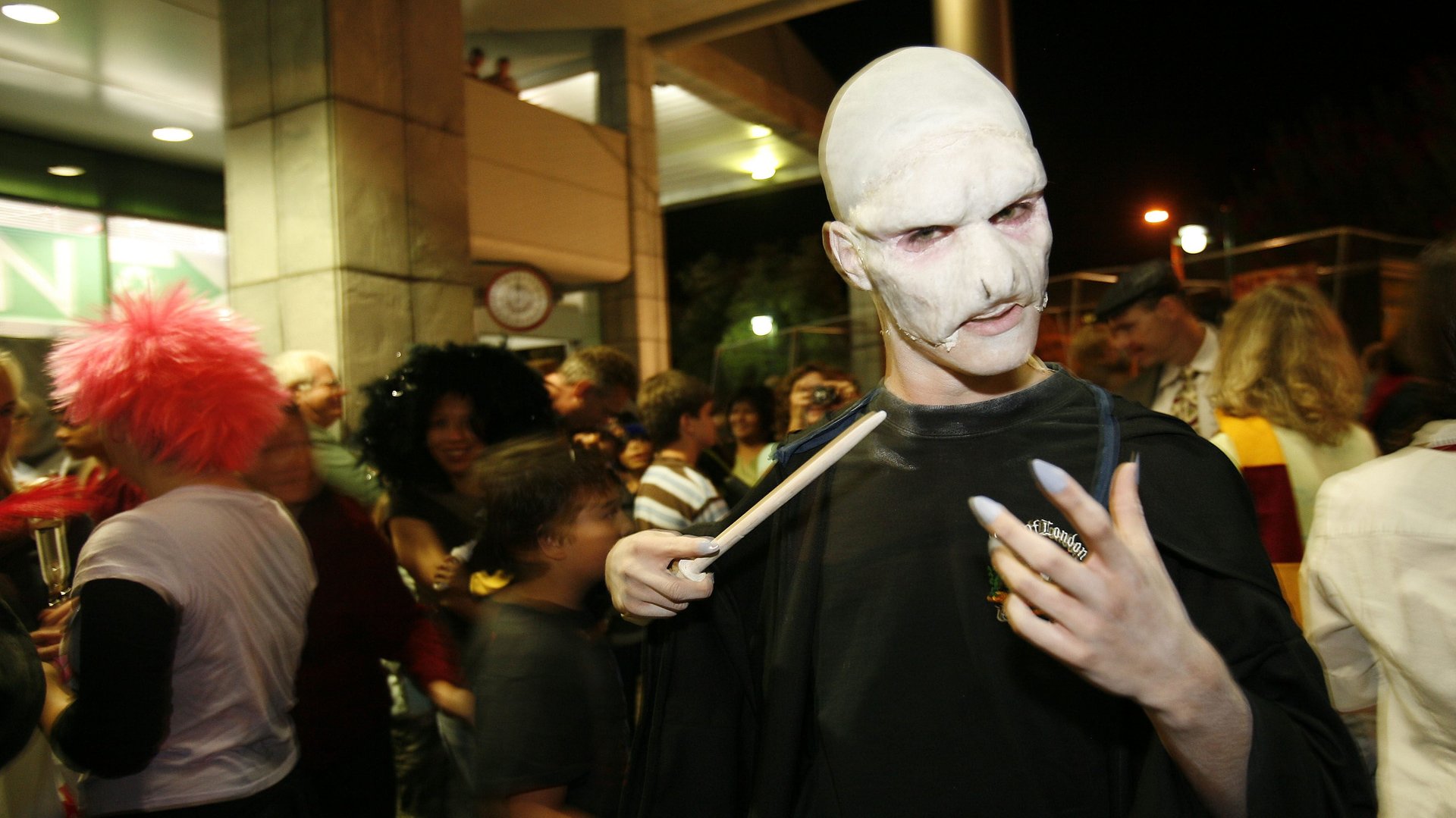Reading Harry Potter is linked to greater acceptance of other people—except Trump
A new study on political attitudes has linked a love of Harry Potter novels to greater real-life tolerance toward others. Unless that other is Donald Trump.


A new study on political attitudes has linked a love of Harry Potter novels to greater real-life tolerance toward others. Unless that other is Donald Trump.
The study (pdf) was conducted by Diana Mutz, a political scientist at the University of Pennsylvania. Mutz surveyed more than 1,000 representative Americans and found that exposure to books about the world’s most famous boy wizard correlated to 1-2% more warmth toward Muslims and gay people.
It also correlated to a 2-3% decrease in warmth toward Donald Trump.
Curiously, exposure to the Harry Potter movies had no significant relationship.
Mutz controlled for age, gender, education, and party affiliation, and found that without those variables, simply having read a Harry Potter book linked to higher positive feelings toward Muslims and gays.
Mutz doesn’t know why the books, but not the movies, correspond to these attitudes, but she speculates that the movies don’t offer the same emotional depth as the books. “Introspection and character development are a lot easier to get into in the books,” she says. “That’s where you see [the characters] thinking about the treatment of Hagrid and the discrimination against the elves.”
Mutz has studied the effects of various media on public opinion since the late ’80s, and she believes that fiction (in books as well as TV and film) is an area ripe for research. “It’s too bad, in a lot of ways, that political scientists are obsessed with nonfiction and news,” says Mutz, “Because most people in the US are exposed to more fiction when it comes to politically relevant stories.”
Her paper will be published in the October issue of PS: Political Science and Politics, according to Mutz.